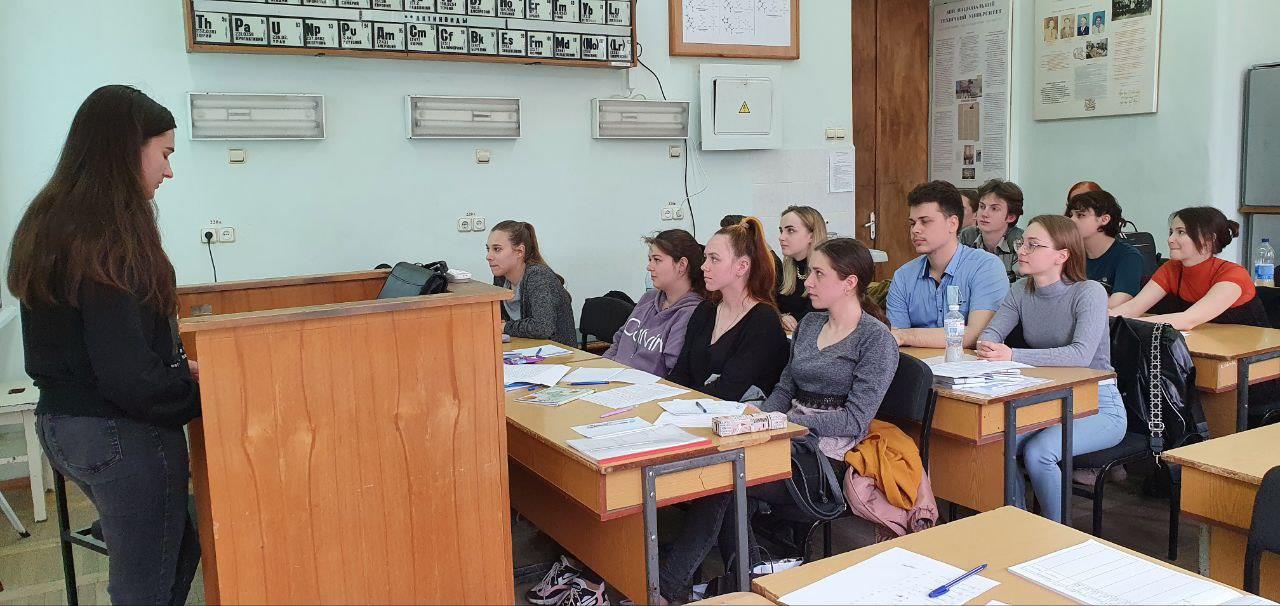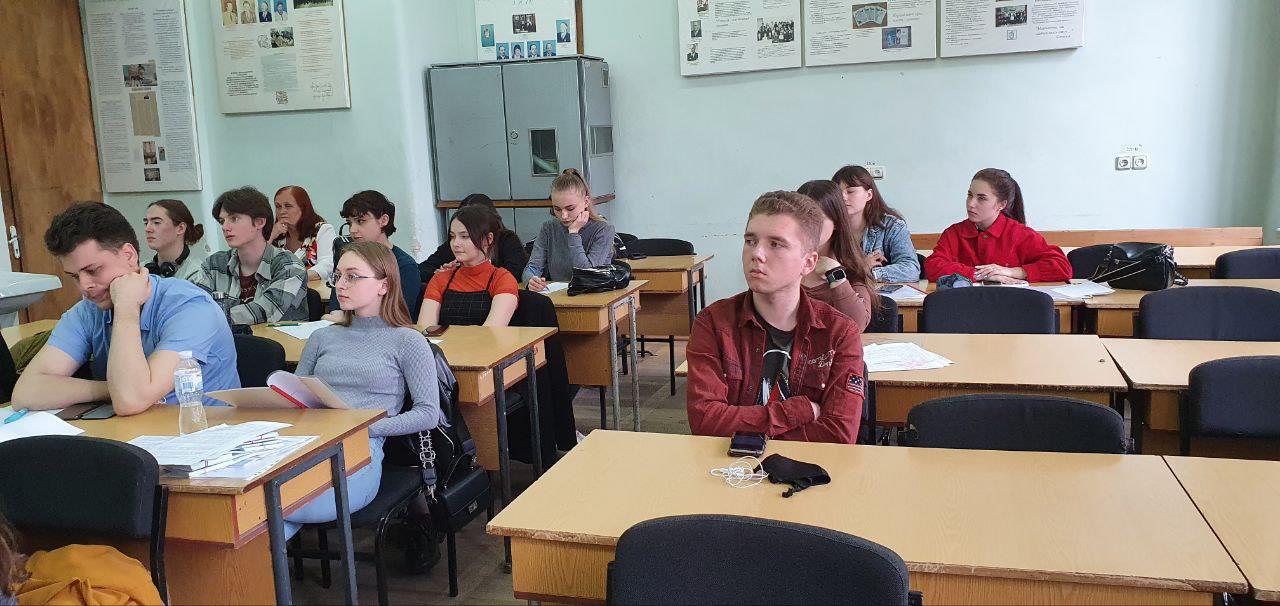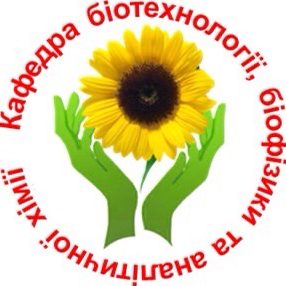Game-Based Project Development
Game-based project development is a modern and widely applied method of intensive learning, effectively used across a variety of academic disciplines.
The core aim of this approach is to create or improve projects within a dynamic, interactive, and game-like environment. During the process, students are divided into groups, with each group working independently on its own project. Students typically select their project topics based on their interests and academic goals.
A distinctive feature of game-based project development is its strong focus on teamwork and active engagement. All projects are developed through group collaboration and creative interaction. Final project outcomes — presented visually, often in the form of multimedia presentations — are discussed and defended during a group session. Based on the discussion results, the following are determined:
-
the most thoroughly developed and well-reasoned project;
-
the project with the most effective and compelling presentation.
This method not only enhances students’ project management skills but also fosters critical thinking, communication, and teamwork — key competencies for future professional success..
Benefits of Game-Based Project Development
✅ Development of Meta-Competencies
Game-based project development enhances students’ ability to work collaboratively and teaches effective teamwork skills — essential for professional success.
✅ Building Team Spirit and Responsibility
Group work fosters strong bonds between participants, developing a sense of both individual and collective responsibility.
✅ Enhancement of Analytical and Creative Potential
Through project work, students strengthen their analytical thinking, forecasting abilities, research skills, and creative capacity.
✅ Advancement of Communication and Presentation Skills
During the project defense stage, students actively develop their presentation abilities, communication skills, and interactive competencies.
Through participation in game-based project activities, students gain practical experience in solving real-world problems and are given the opportunity to test and refine their solutions under laboratory conditions — preparing them for future professional challenges.
2024–2025 Academic Year
Project Coordinators:
Olga M. Bliznjuk
Head of the Department, Professor, Doctor of Technical Sciences.
Lead Lecturer for the Disciplines:
«Біофізична хімія», «Біофізика», «Молекулярна та хімічна біофізика», «Біонанотехнологія, нанобіофізика та нанофармація», «Мікро- і нанодисперсні системи і процеси в біотехнології та біоінженерії», “Біонанотехнологія, нанобіофізика та нанофармація”, “Ферментативний каталіз”, “Біокинетичні моделі”, “Основи біокінетики та фармакокінетики” та курси англійською мовою “Bionanotechnology, nanobiophysics and nanopharmacy”, “Enzymatic catalysis”, “Biokinetic models”, “Basics of biokinetics and pharmacokinetics”, ” Bioinformatics and information biotechnology”.
Iryna A. Bielykh
Associate Professor, Candidate of Biological Sciences.
Lead Lecturer for the Disciplines:
«Методи аналізу біологічних систем», «Методи аналізу біофармацевтичних препаратів», «Сенсорні системи в промисловій біотехнології», «Сенсорні системи в біофармації», «Основи фармакології», «Основи фармакогнозії», «Організація біотехнологічних виробництв в умовах GMP».
Nataliia Yu. Masalitina
Associate Professor, Candidate of Technical Sciences
Lead Lecturer for the Disciplines:
«Біохімія Ч1,Ч2», «Біохімія та молекулярна біологія», «Загальна мікробіологія і вірусологія», «Біологія клітини», «Біоорганічна хімія», «Аналітична хімія», «Молекулярна біотехнологія та біоінженерія», «Генетична інженерія та біоінженерія», «Analytical Chemistry», «Molecular biotechnology and bioengineering», «Genetic engineering and bioengineering».
On October 29, 2024, game-based project development was conducted in an online format..
At the Department of Biotechnology, Biophysics, and Analytical Chemistry, an interactive session incorporating elements of game-based project development was held for groups ХТ-М424а, ХТ-М424б.
Students engaged in dynamic teamwork as part of the course “Bionanotechnology, Nanobiophysics, and Nanopharmacy,” developing creative project solutions and presenting their ideas in an online format.
The event fostered collaboration, innovation, and practical application of theoretical knowledge in a modern educational environment.
Topic of the session: “Recent Advances in Bionanotechnology, Nanobiophysics, and Nanopharmacy.”
Supervisors:
-
Professor Olha Mykolaivna Blyzniuk
-
Associate Professor Iryna Anatoliivna Bilykh
-
Associate Professor Nataliia Yuriivna Masalitina
Attendees:
-
Olena O. Kucheriavenko, Methodologist of the Highest Category, Methodological Department of NTU “KhPI”
-
Olena M. Piven, Professor at the Department of Fat and Fermentation Products Technology
-
Larysa V. Liashok, Professor at the Department of Technical Electrochemistry
-
Hanna M. Hariaieva, Associate Professor at the Department of Law
-
Viktor V. Klitnoi, Professor at the Department of Machine Parts and Mechanical Systems
-
Olena I. Zinchenko, Professor at the Department of Computer-Integrated Technologies, Applied Mechanics, and Materials Science (TSAPMM)
-
Olesia M. Filenko, Associate Professor at the Department of Chemical Engineering and Industrial Ecology
Student Winners of the Competition:
- Anastasiia O. Znakhur, ХТ-М424а (State-Supported Study Program);
- Hanna D. Burenkova, ХТ-М424б (State-Supported Study Program);
- Viktoriia M. Vaskovska, ХТ-М424б (State-Supported Study Program);
- Artem R. Ivanov, ХТ-М424б (State-Supported Study Program).
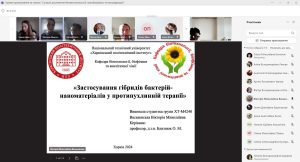
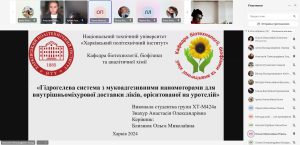
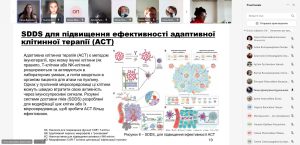
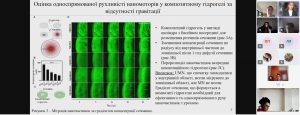
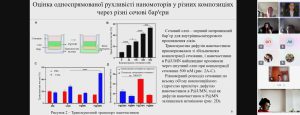
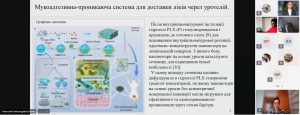
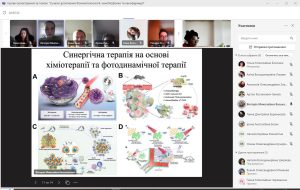
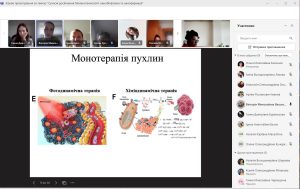
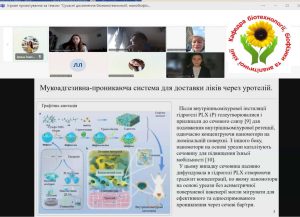
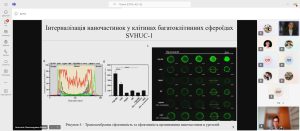
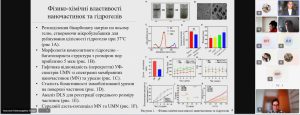
The Department of Biotechnology, Biophysics, and Analytical Chemistry held the First Round of the All-Ukrainian Student Olympiad in Biotechnology and Bioengineering on March 28–29, 2024.
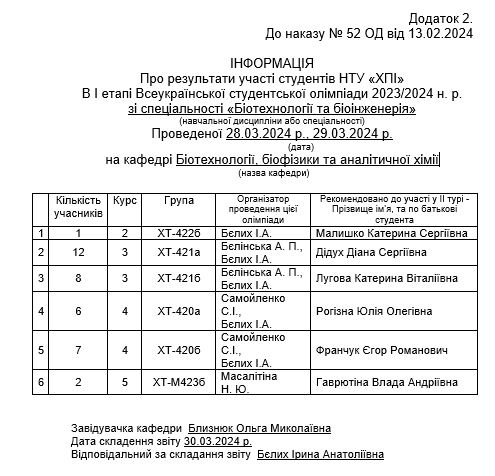
The Department of Biotechnology, Biophysics, and Analytical Chemistry held the First Round of the All-Ukrainian Student Olympiad in Analytical Chemistry on February 28, 2024.
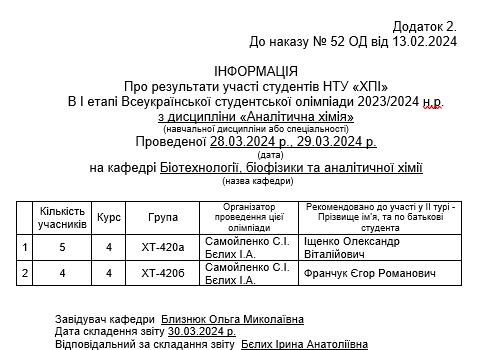
In the 2022/2023 and 2023/2024 academic years, game-based project development was conducted in an online format.
At the end of the semester, in accordance with the curriculum for the disciplines “Methods of Analysis of Biological Systems” and “Methods of Analysis of Biopharmaceutical Systems,” a course project defense was held in the form of a student competition.
The defense took place in the presence of a jury composed of three faculty members from the department, a lecturer from another department, and a representative of the Methodological Department of NTU “KhPI.”
Students presented the content of their course projects, with the jury focusing on the relevance of the chosen topic, the detailed description of the biological object, and the methods of analysis based on the key quality indicators in accordance with Ukrainian regulatory standards. Presentations were supported by appropriate illustrative materials.
After each presentation, students answered a series of questions from the jury members, attending lecturers, and fellow students. This questioning session promoted a constructive dialogue among all participants.
Based on the results of the defense, the jury assigned final grades and announced the competition winners. When determining the winners, the commission evaluated not only the quality of the presentation but also the students’ ability to ask thoughtful questions and engage in dialogue.
Winners received additional points in the discipline as well as bonus points toward their overall academic rating, providing strong motivation for further achievements.
Thus, the game-based format of the course project defense enhances the quality of education through students’ extracurricular engagement, allows them to apply newly acquired knowledge and skills in practice, fosters organizational abilities, and strengthens their self-confidence.
.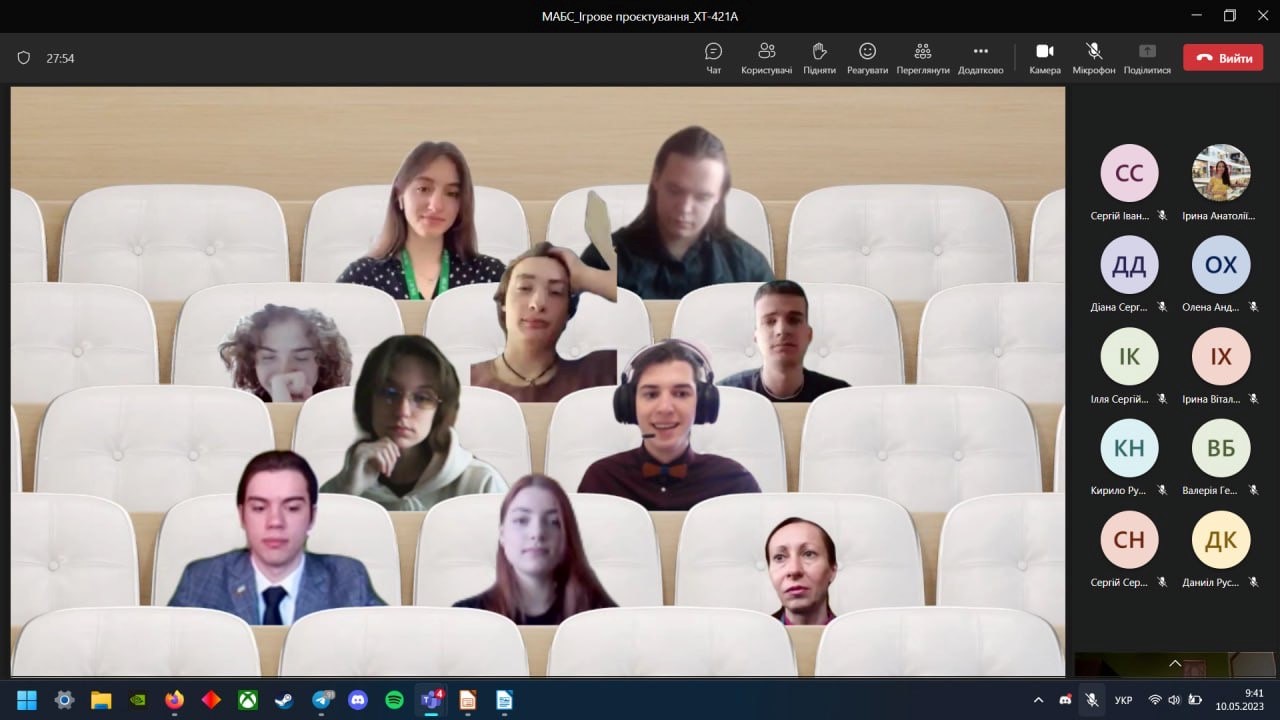
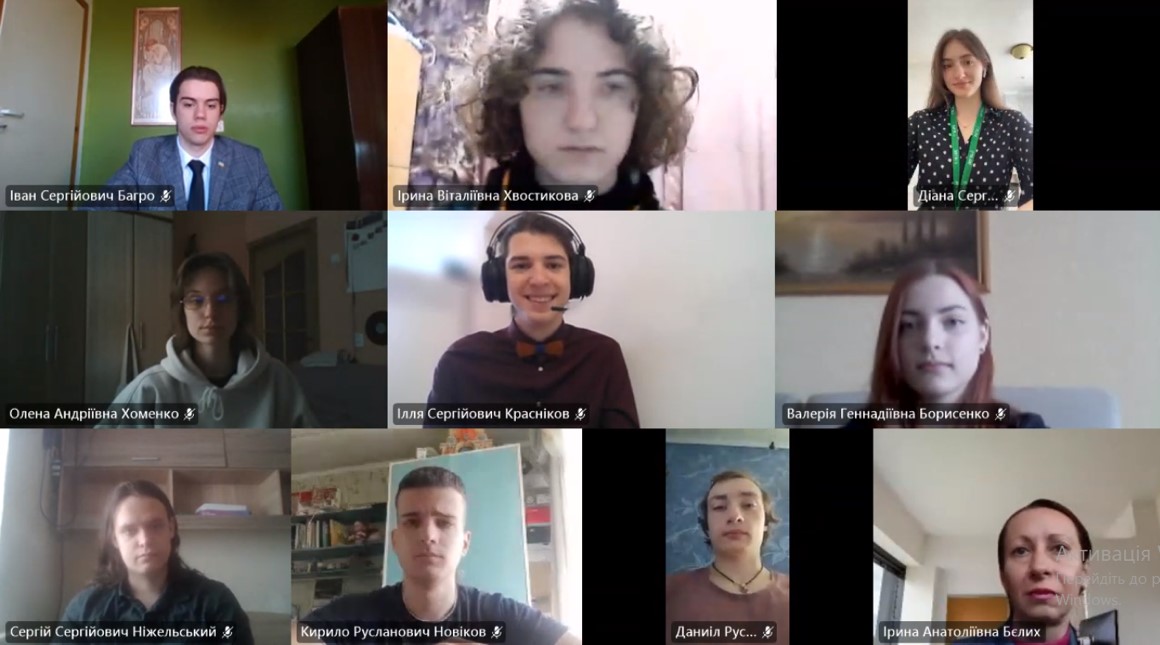
Winners of the 2023 Student Competition:
Ivan S. Bahro ХТ-421а
Diana S. Didukh ХТ-421а
Illia S. Krasnikov ХТ-421а
Project Coordinators:
Olga M. Bliznjuk
Head of the Department, Professor, Doctor of Technical Sciences.
Lead Lecturer for the Disciplines:
«Біофізична хімія», «Біофізика», «Молекулярна та хімічна біофізика», «Біонанотехнологія, нанобіофізика та нанофармація», «Мікро- і нанодисперсні системи і процеси в біотехнології та біоінженерії», “Біонанотехнологія, нанобіофізика та нанофармація”, “Ферментативний каталіз”, “Біокинетичні моделі”, “Основи біокінетики та фармакокінетики” та курси англійською мовою “Bionanotechnology, nanobiophysics and nanopharmacy”, “Enzymatic catalysis”, “Biokinetic models”, “Basics of biokinetics and pharmacokinetics”, ” Bioinformatics and information biotechnology”.
БЛИЗНЮК Ольга МиколаївнаIryna A. Bielykh
Associate Professor, Candidate of Biological Sciences.
Lead Lecturer for the Disciplines:
«Методи аналізу біологічних систем», «Методи аналізу біофармацевтичних препаратів», «Сенсорні системи в промисловій біотехнології», «Сенсорні системи в біофармації», «Основи фармакології», «Основи фармакогнозії», «Організація біотехнологічних виробництв в умовах GMP».
БЄЛИХ Ірина Анатоліївна
Самойленко Сергій Іванович (до 2023 року)
Доц. каф. «Біотехнології, біофізики та аналітичної хімії», канд. техн. наук.
Профільні дисципліни: «Аналітична хімія», «Фізико-хімічні методи аналізу», «Устаткування біотехнологічних виробництв».
Керівник ігрового проєкту з дисциплін: «Методи аналізу біологічних систем», «Методи аналізу біофармацевтичних препаратів».
САМОЙЛЕНКО Сергій ІвановичІнформація про проєкт:
Легенда. Однією з форм навчального процесу на кафедрі є проведення в ігровій формі. Ця форма занять викликає значний інтерес у студентів та сприяє підвищенню їх академічної успішності.
Основними завданнями ігрової форми навчання є набуття навичок роботи в команді та налагодження комунікації між учасниками процесу, розвиток організаторських здібностей, підвищення самооцінки, закріплення знань, отриманих на лекціях.
Ця сучасна форма навчання допомагає учасникам навчального процесу отримати знання виходячи з особливості кожного, а саме підвищує швидкість засвоєння матеріалу, його аналізу, проведення відповідних розрахунків, прийняття вірних висновків. За прогнозами видатних педагогів ігрова форма навчання може замінити традиційні.
Список ролей учасників. Декілька проєктних підгругруп. Процес ігрового проєктування контролюється комісією, до якої входять арбітр (завідувач кафедри) та викладачі, які керують грою.
Комісія остаточно оцінює роботу студентів та визначає серед них переможців.
Правила гри та технічні питання. Ігрове проєктуваня проводиться у вигляді лабораторних занять у навчальній лабораторії кафедри біотехнології та аналітичної хімії, згідно з розкладом занять.
Студенти діляться на 3–4 підгрупи по 4–5 осіб та вибирають свого керівника. Кожна підгрупа виконує поставлене завдання з кількісного визначення вмісту компонентів у біологічних (біофармацевтичних) об’єктах. Керують грою викладачі, які пояснюють основні етапи гри, видають навчально-методичні матеріали.
Під час виконання занять використовують наступне стандартне лабораторне обладнання:
- Мірні колби
- Мірні піпетки
- Мірні бюретки
- Колби для титрування
- Індикатори
Прилади. Для вимірювання оптичної густини розчинів (величини світлопропускання), що аналізують та розчинів порівняння використовують Колориметр фотоелектричний концентраційний КФК-2. Оптимальну довжину хвилі визначають за допомогою спектру поглинання.
Мета дисципліни, задачі та очікувані результати заняття або проєкту. Формування у студентів навиків практичної роботи з якісного та кількісного визначення компонентів у зразках біологічного (біофармацевтичного) походження та вміння самостійно проводити розрахунки за результатами аналізу.
Основна частина. Перед початком викладачі пояснюють мету, завдання та правила проведення гри, а також виявлення переможців.
Для досягнення мети ігрового проєкту кожен учасник гри приймає на себе певні функціональні обов’язки: формування складу ігрової групи, розробка плану проведення роботи, контроль проведення виконання завдання, підведення підсумків змагання між ігровими групами.
Студенти самостійно утворюють декілька підгруп. В процесі виконання етапів робіт кожний учасник гри повинен підвищити знання шляхом опрацювання основ дисципліни за лекціями та підручниками, методичними вказівками до виконання лабораторних робіт.
На початковій стадії навчання пропонується засвоїти найбільш суттєві моменти матеріалу, що вивчають. Оптимізують його обсяг з метою полегшення засвоювання головних питань, без яких не обійтися на практиці.
Умови гри передбачають активність учасників під час обговорення. Кожний студент зобов’язаний поставити запитання, також запропонувати своє рішення з цього питання.
Активність кожного учасника гри оцінюється наступним чином в балах:
3 – малоактивний (відповідає на запитання з помилками, виконує завдання під керівництвом викладача);
4 – активний (відповідає на поставленні запитання з незначними помилками, виконує завдання без допомоги викладача);
5 – високоактивний (відповідає на поставлені запитання, проявляє відмінні знання відносно суті поточного матеріалу, самостійно виконує роботу).
Підведення підсумків змагань проводиться в кінці кожного етапу. Переможцями змагань вважаються ті групи, що набрали більше всіх балів та виконали завдання у визначені терміни.
Таким чином, ігрова форма проведення занять підвищує якість навчання за рахунок позааудиторної роботи студентів, зобов’язує студента систематично працювати, розвиває організаторські здібності, підвищує самодисципліну.
Підсумки змагань обов’язково враховуються при підсумковій атестації студента в кінці семестру.

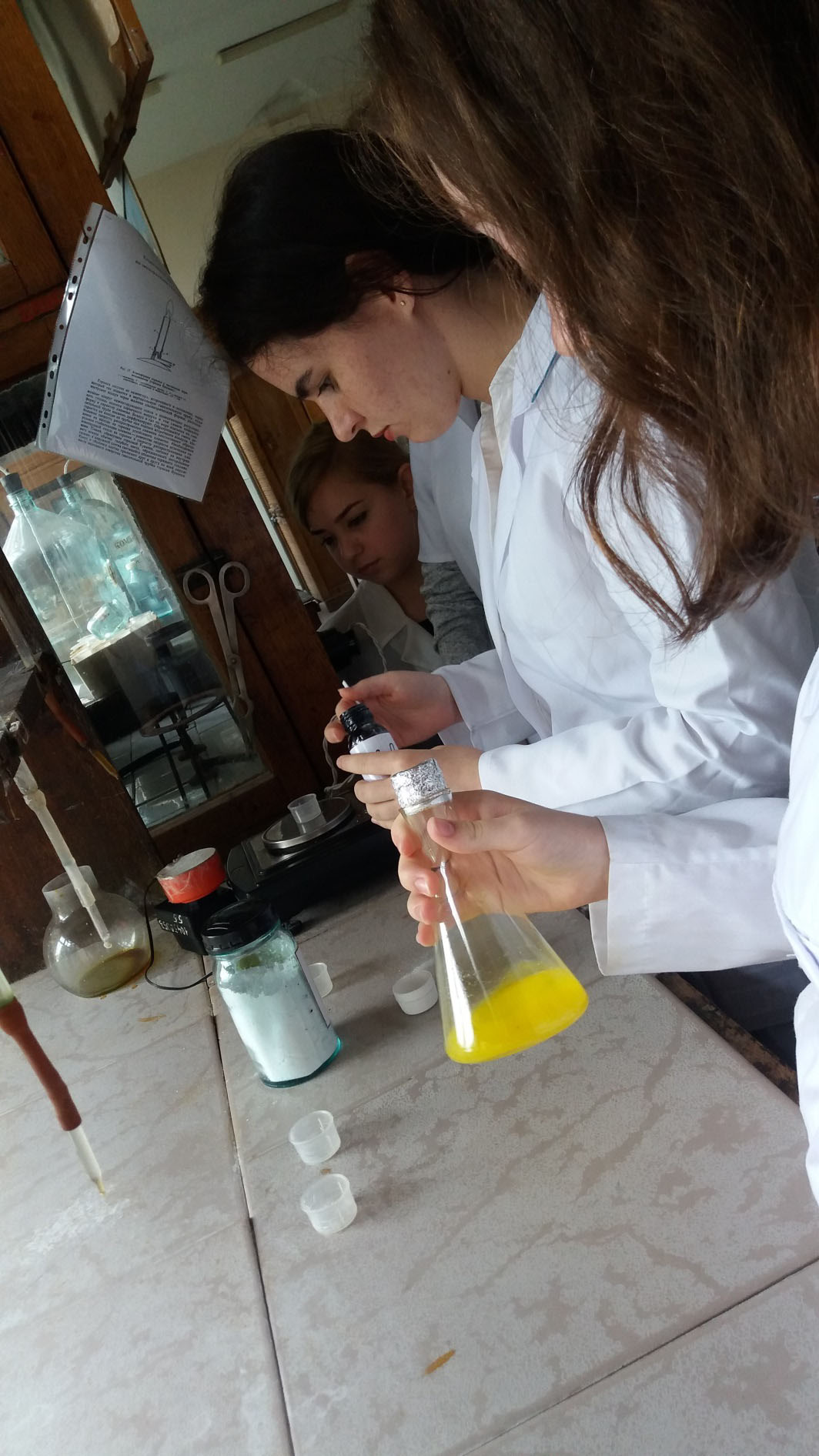
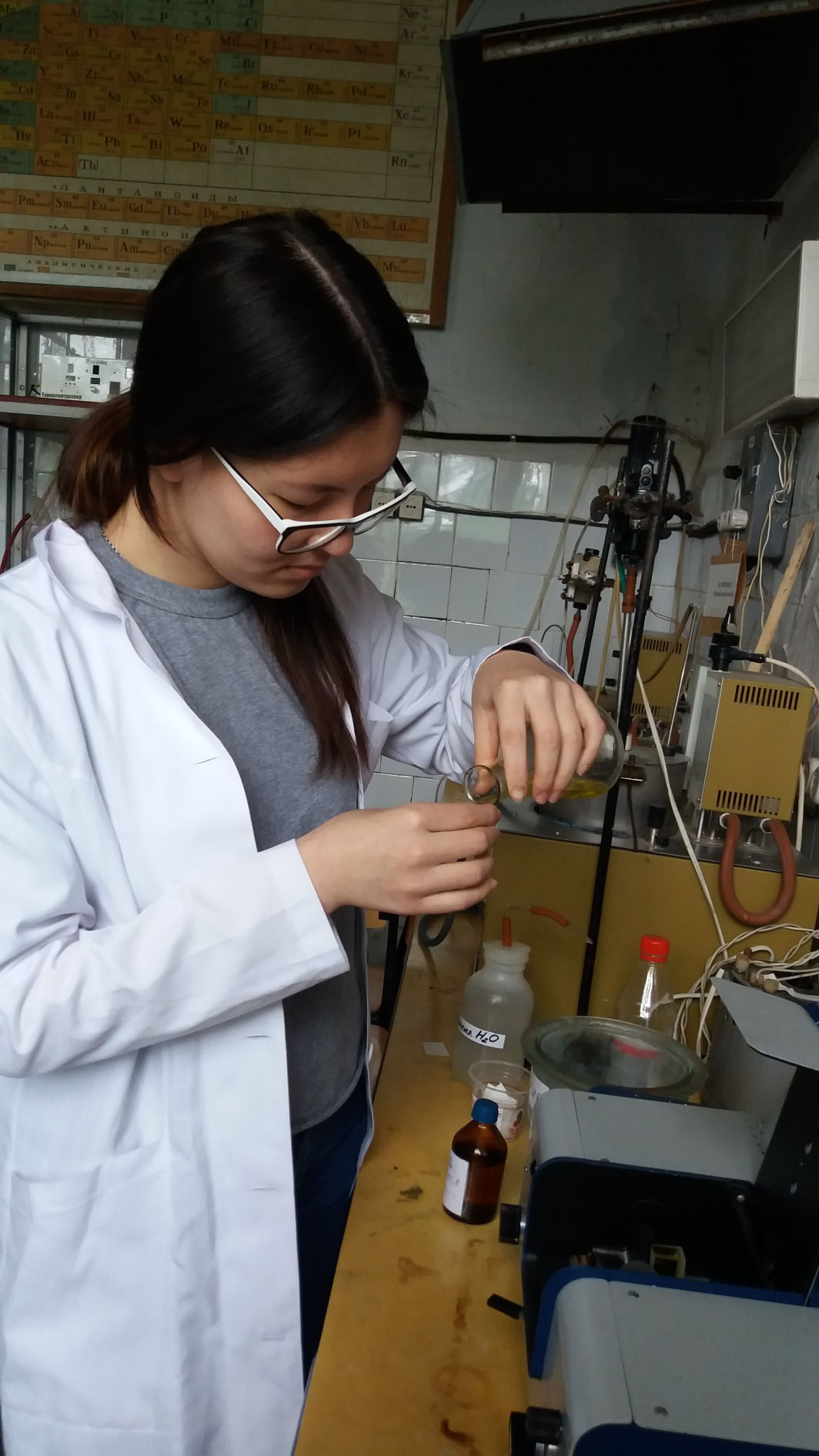
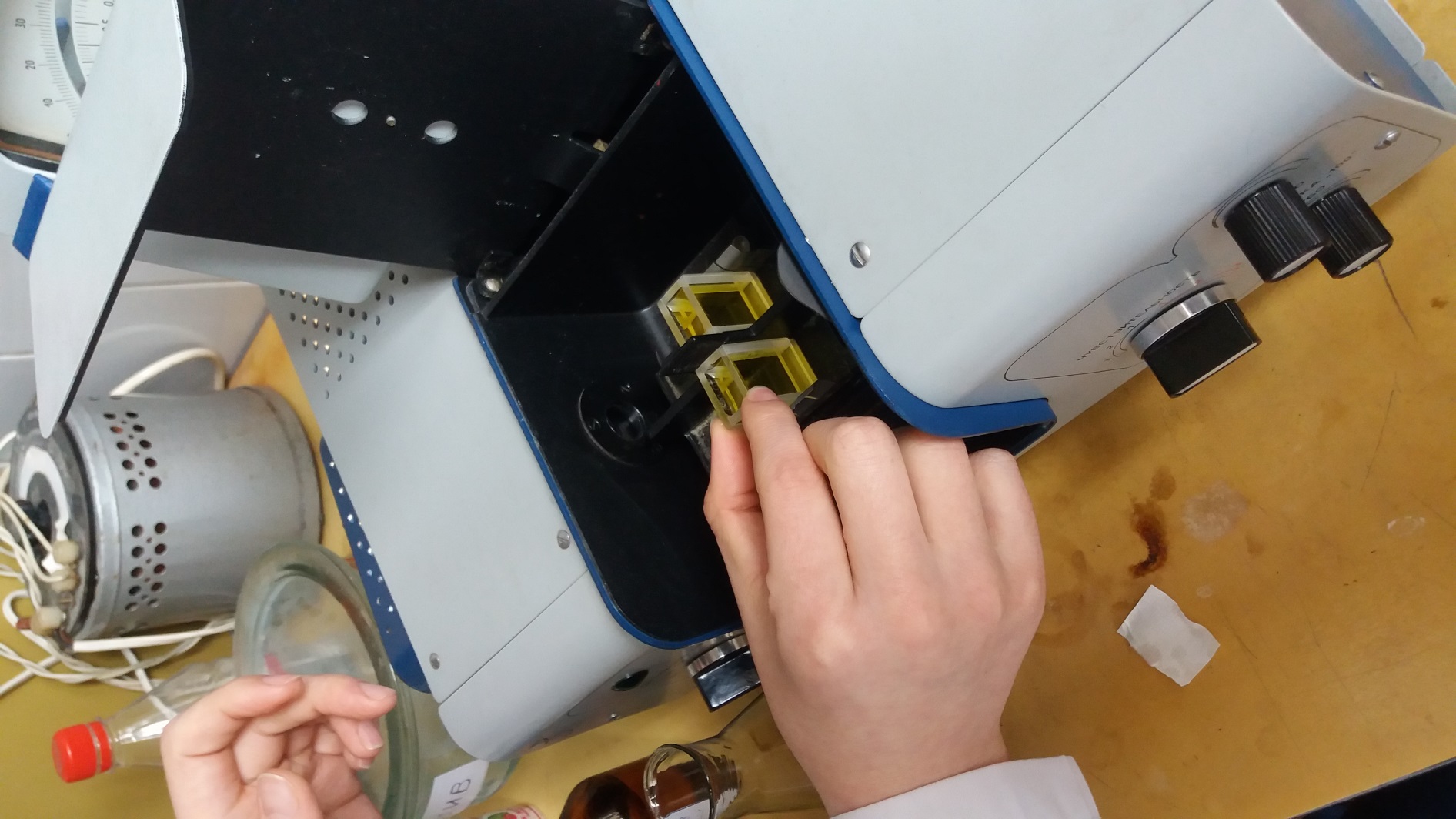
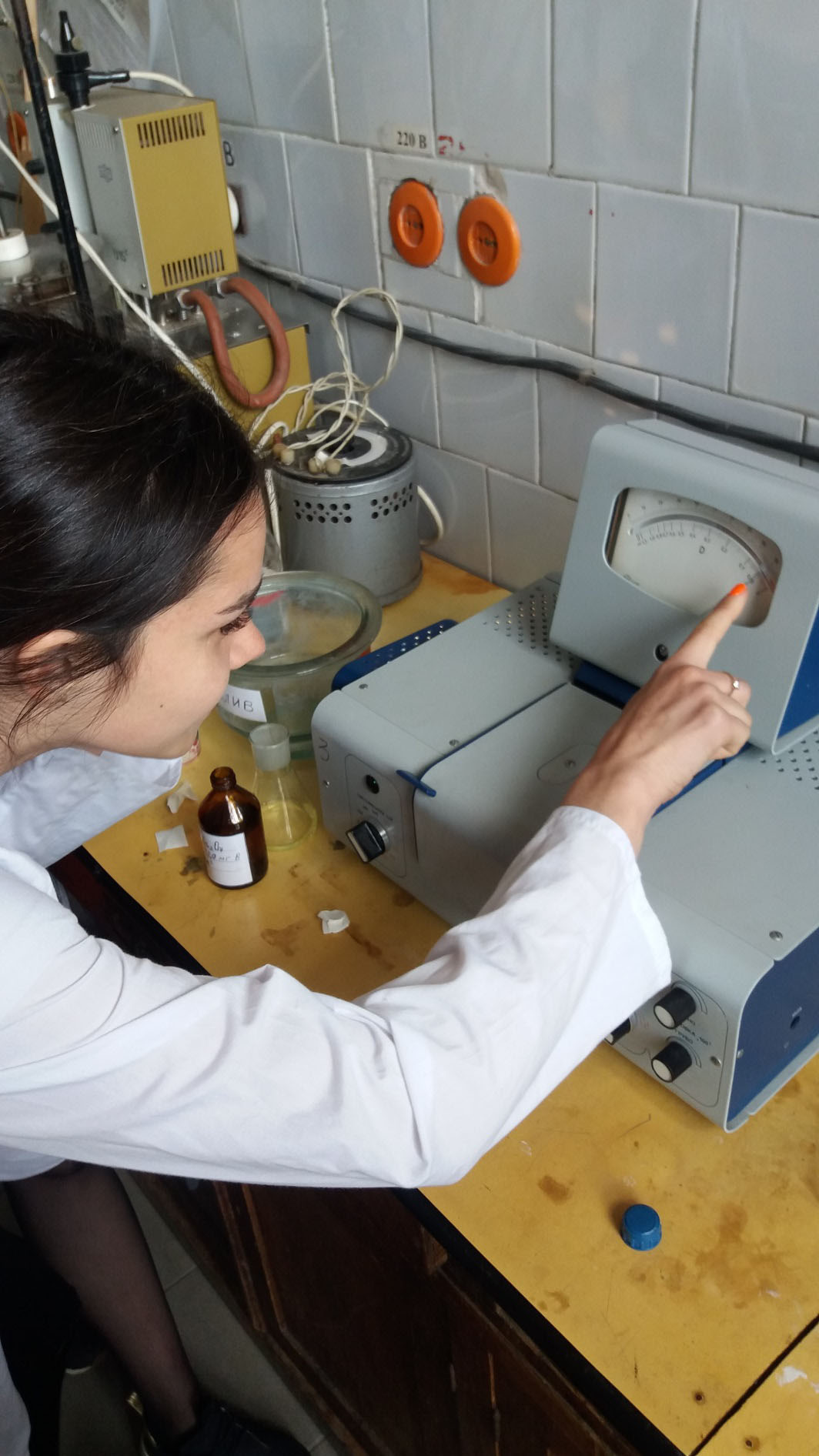
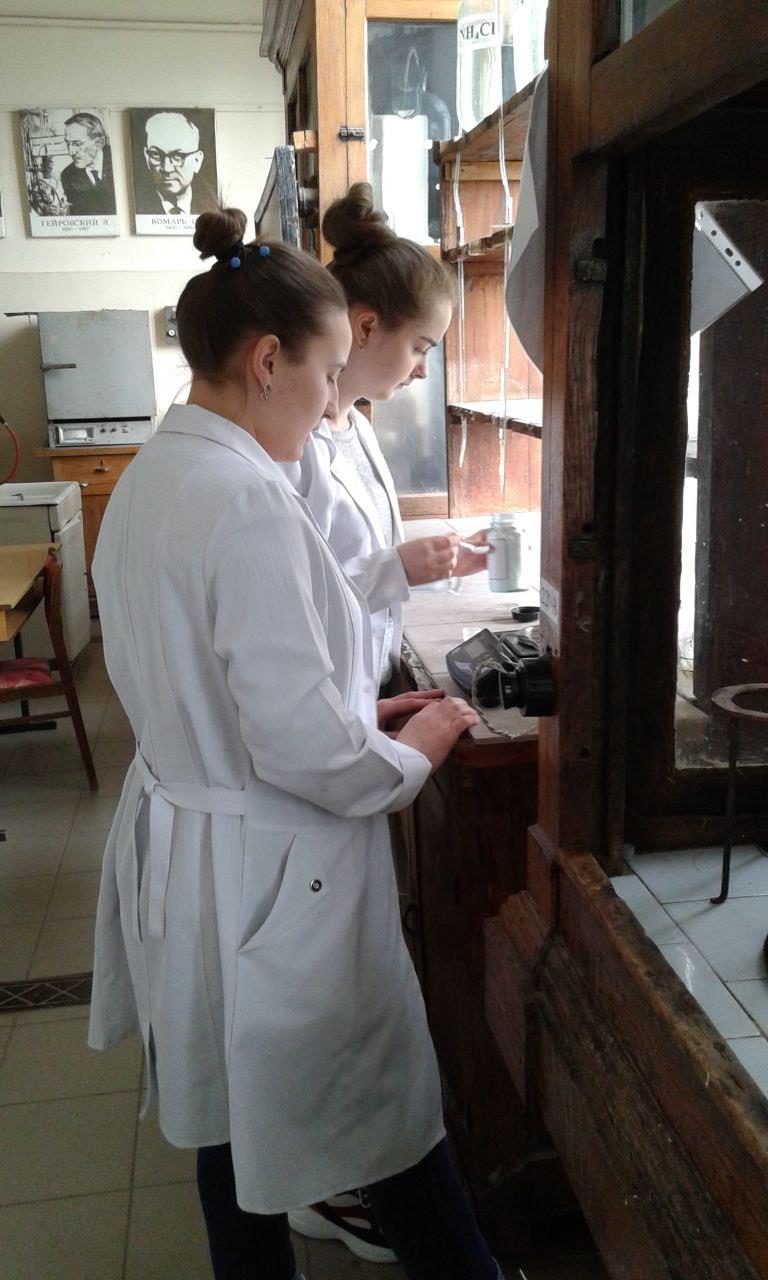






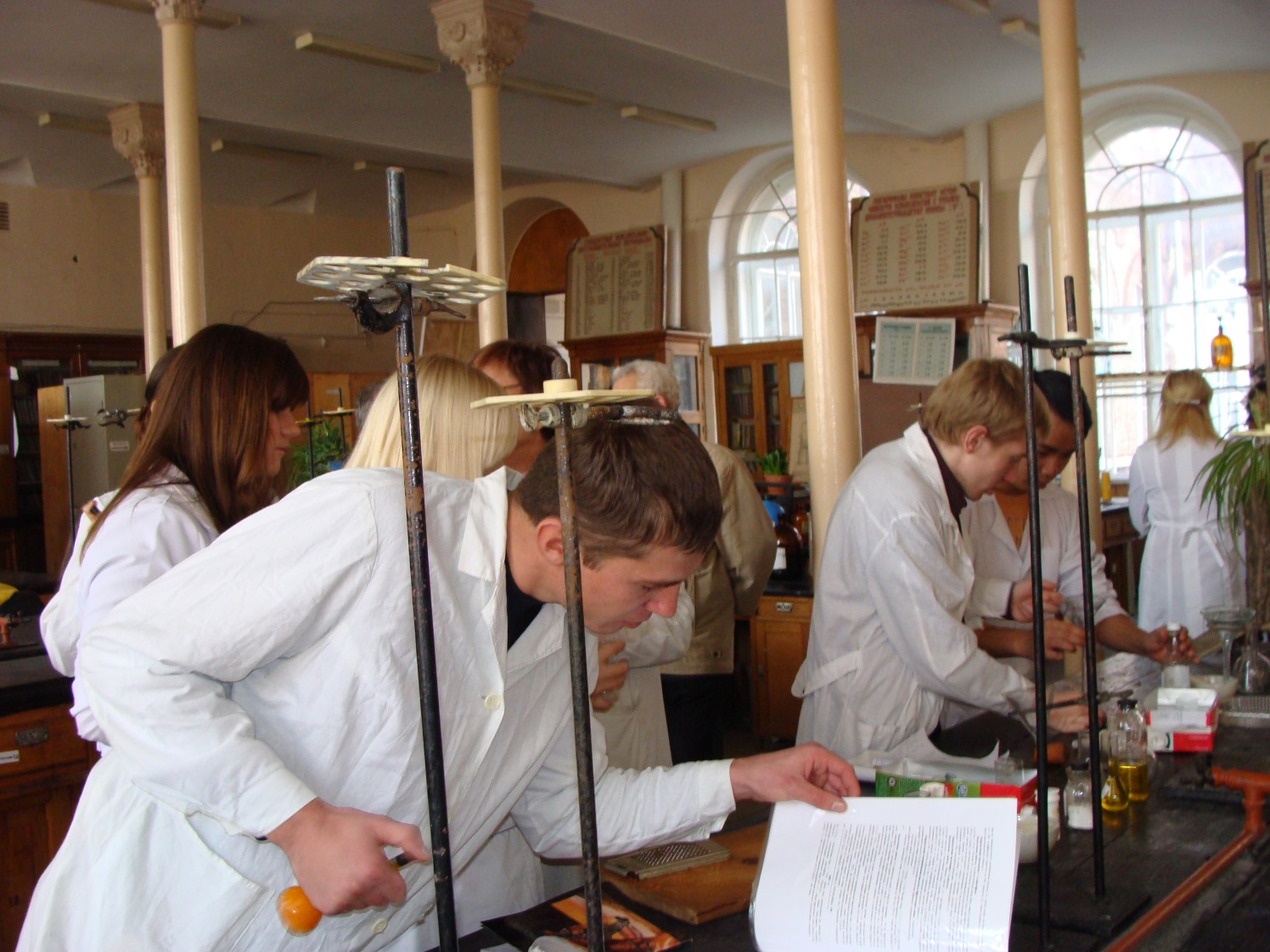
Студенти переможці змагань 2019 року:
Журій Дар’я Володимирівна
Левченко Маргарита Сергіївна
Лушкіна Ксенія Олександрівна
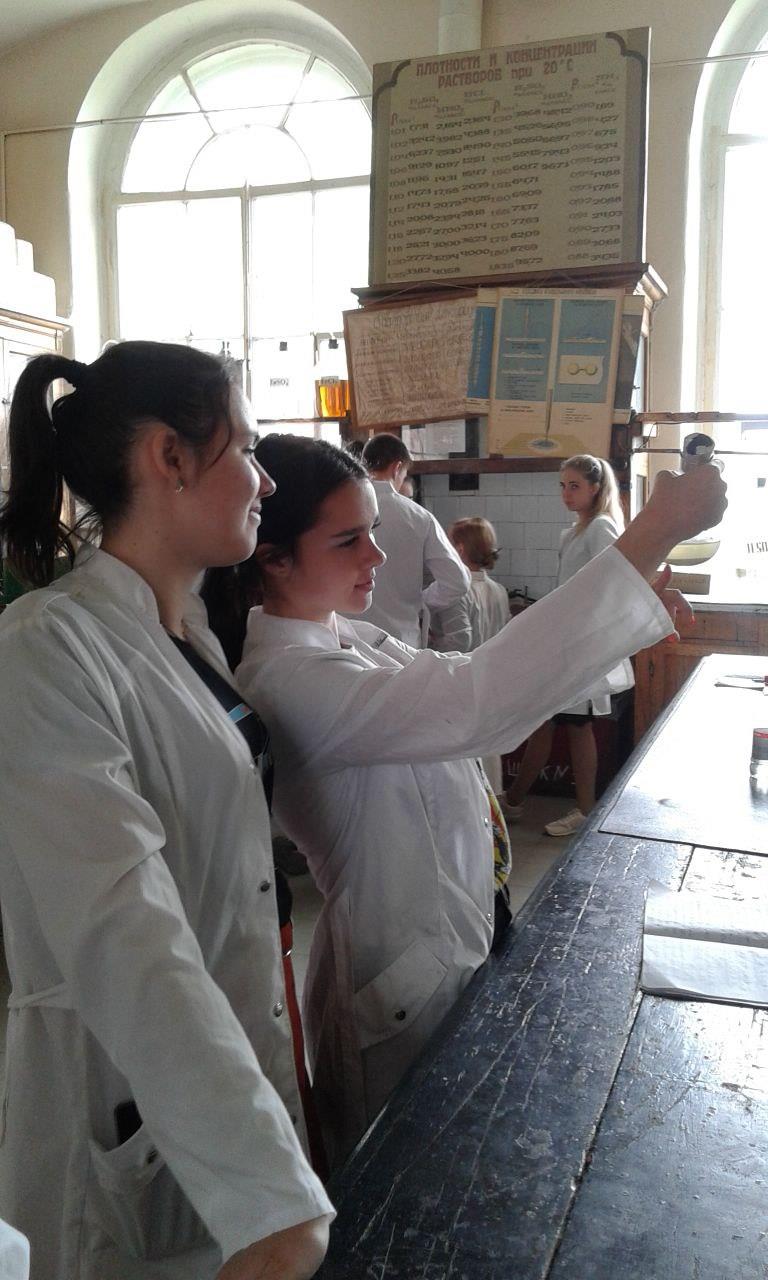
Студенти переможці змагань 2021 року:
Орєхова Поліна Романівна, гр. ХТ-419а
Сокол Ірина Романівна, гр. ХТ-419а
Гаврютіна Влада Андріївна, гр. ХТ-419б
Рейнт Юлія Петрівна, гр. ХТ-419б
